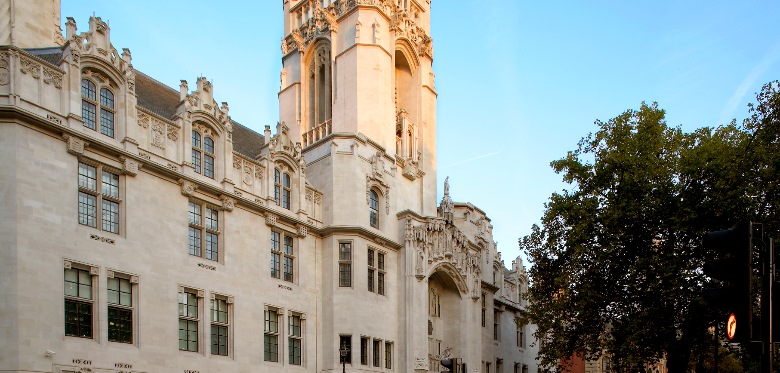The civil case of Ivey v Genting Casinos UK Ltd (t/a Crockfords Club) [2017] UKSC 67, published in the last few days, has rewritten criminal law textbooks overnight.
The case itself concerned a professional gambler who observed minute variations in the rear design of the playing cards in order to identify favourable cards and bet accordingly. His argument was that it was not cheating, but rather his leveraging a perfectly legitimate advantage.
But the court, by changing the definition of "dishonesty" in criminal law has affected a variety of offences, from low level shoplifting in the Theft Act 1968 to serious fraud in the Fraud Act 2006.
Ghosh test
Dishonesty had previously been defined in the case of R v Ghosh [1982] 3 W.L.R. 110 and demanded a two stage test to determine if a defendant had acted dishonestly:
1) Were the defendant's actions dishonest according to the ordinary standards of reasonable and honest people?
If no, acquit. If yes, move to question 2.
2) Did the defendant realise that reasonable and honest people would have found what he was doing to be dishonest?
If no, acquit. If yes, convict.
Ivey test
In the case of Ivey, the Supreme Court stated that the second limb of the test, commonly referred to as the subjective portion, now constitutes bad law, and that the test is instead as established by Lord Hoffmann in Barlow Clowes International Ltd & Anor v Eurotrust International Ltd & Ors (Isle of Man) [2005] UKPC 37:
'Although a dishonest state of mind is a subjective mental state, the standard by which the law determines whether it is dishonest is objective. If by ordinary standards a defendant's mental state would be characterised as dishonest, it is irrelevant that the defendant judges by different standards.'
Commentators have suggested in the past few days that this is now a purely objective test and that the court need not take into account the defendant's state of mind when considering dishonesty but, in the author's humble view, this is a misunderstanding of the new position.
What has changed?
The reason behind the two-stage test in Ghosh was a concern that somebody acting wholly innocently could be labelled as being dishonest. The court illustrated this with an example:
'Take for example a man who comes from a country where public transport is free. On his first day here he travels on a bus. He gets off without paying. He never had any intention of paying. His mind is clearly honest; but his conduct, judged objectively by what he has done, is dishonest. [...] If we are right that dishonesty is something in the mind of the accused [...], then if the mind of the accused is honest, it cannot be deemed dishonest merely because members of the jury would have regarded it as dishonest to embark on that course of conduct. So we would reject the simple uncomplicated approach that the test is purely objective, however attractive from the practical point of view that solution may be.'
The court in Ivey considered the very same scenario but came to its conclusion in a different manner:
'But the man in [the above] example would inevitably escape conviction by the application of the (objective) first leg of the Ghosh test. That is because, in order to determine the honesty or otherwise of a person’s conduct, one must ask what he knew or believed about the facts affecting the area of activity in which he was engaging. In order to decide whether this visitor was dishonest by the standards of ordinary people, it would be necessary to establish his own actual state of knowledge of how public transport works. Because he genuinely believes that public transport is free, there is nothing objectively dishonest about his not paying on the bus.'
In Ghosh, the court saw it as self-evident that travelling without paying for a fare was dishonest. As a result of Ivey, the facts no longer speak for themselves and the subjective element has been 'transplanted' in order to form a 'hybrid' test. The court demands that we now examine the defendant's conduct whilst taking into account his knowledge or beliefs as to the facts.
To put it another way, juries will most likely be directed to ask themselves:
1) Were the defendant's actions, bearing in mind his knowledge of or beliefs as to the facts, dishonest according to the ordinary standards of reasonable and honest people?
If no, acquit. If yes, convict.
In practice
If there was a lacuna prior to the Ivey judgement then it was not an especially large or readily identifiable one. Those accused of serious fraud or professional misconduct will still be able to argue that, on the basis of the facts as they knew them to be, they were not acting dishonestly.
Under Ghosh, someone involved in what they thought was a perfectly legitimate investment, which later turned out to be a fraudulent, would have traditionally been caught by the first limb of the test (since it was undisputed that the investment itself was fraudulent) but would have been saved by the second limb since, at the time, he would not have realised that reasonable and honest people would have found his actions to be dishonest. Under Ivey, he argues that, on the basis of the facts as he understood them, his actions weren't dishonest.
To-may-to, to-mah-to.



Comments